Trainee Spotlights

April 7 – 11 is National Graduate & Professional Student Appreciation Week! Join us as we celebrate our graduate students and highlight some of their research and personal interests. We will post two new Trainee Spotlights every day for National Graduate & Professional Student Appreciation Week 2025, so check back daily!
2025
 For our last day of spotlights for Graduate & Professional Student Appreciation Week 2025, we first spoke with Kevin Levesque. Kevin is currently pursuing his Master’s degree in Biomedical Engineering, and is a member of The Connizzo Lab. His research focuses on investigating the behaviors of the extracellular matrix in tendon explants following an acute tensile strain. Check out his Q&A below to learn more!
For our last day of spotlights for Graduate & Professional Student Appreciation Week 2025, we first spoke with Kevin Levesque. Kevin is currently pursuing his Master’s degree in Biomedical Engineering, and is a member of The Connizzo Lab. His research focuses on investigating the behaviors of the extracellular matrix in tendon explants following an acute tensile strain. Check out his Q&A below to learn more!Where did you attend college, and in what field is your undergraduate degree?
I attended the University of Rhode Island to pursue a 4-year degree in Kinesiology. Here, I expanded my knowledge of anatomy and physiology, but also received exposure to biomechanics and physics, which largely influenced my future endeavors.
What brought you to BU to pursue your doctorate/master’s/postdoc?
Like many of my peers across the country/globe, graduating in the spring of 2020 presented new challenges and opportunities. Though my original post-graduate plan was a career in physical therapy, after graduation I felt as though I was not 100% invested in or passionate about pursuing that path. With my background in physiology and interest in expanding my knowledge in the sciences–particularly in biomechanics–when I stumbled upon BU’s LEAP program, I was immediately interested. I ultimately decided that my pursuit of a master’s degree in biomedical engineering would be in BU’s LEAP program.
Can you give us a brief overview of your research?
My research investigates the behaviors of the extracellular matrix in tendon explants following an acute tensile strain. Literature has revealed that at higher strain levels on the stress-strain curve, collagen denaturation is present and increasing. However, at lower strain levels below a defined threshold, we want to clarify if microdamage occurs–and to what degree. This work will hopefully provide insight for current and future work in our lab as it pertains to the matrix behaviors of tendons.
What advice would you give to incoming first-year graduate students in your lab?
The most valuable advice I could give is to trust your intuition when starting out in the lab–even though that can be easier said than done. I’ve personally struggled with imposter syndrome throughout my time in academia, but I’ve learned that leaning on your background and seeking support from your peers can help you realize that you’re right where you belong.
You have the potential to contribute meaningfully to scientific breakthroughs, so trust in your education and your work ethic, and keep an open mind as you continue building your skills.
Are you more of a “dog person” or a “cat person”? (Or both, or neither!)
Not only am I more of a “dog person”, but I’m a proud dog dad to a very handsome 5-year-old dog named Chandler. My girlfriend and I rescued Chandler in May 2020 at 4 months old, and we’ve been incredibly lucky to watch him grow from this tiny, goofy, and timid puppy. Outside of all the benefits that comes with having a pet so pivotal to your family, Chandler has inspired our family enormously. In Spring of 2024, we got the gut-wrenching news that Chandler had thyroid cancer that wasn’t feasible to treat. In the past year, not only have we given him endless number of treats, snuggles, walks, and love, we are so proud to say that despite his diagnosis, he is still thriving! Now, we navigate the unknown path ahead with so much gratitude for his lust for life and capacity for love from our family. So not only am I more of a “dog person”, I am so lucky to have my sweet boy, Chandler.
How do you deal with the cold Boston winters?
As a native New Englander, you learn to bundle up and power through the long, bitter months. That said, I’ve definitely started to consider trading out the winters and relocating somewhere with a warmer climate following graduation!
________________________________________________
 Last, but certainly not least, is our Trainee Spotlight on Ph.D. student Jeremy Tran. Jeremy is a member of The Ngo Lab, working with PI John Ngo and his fellow trainees in the field of mammalian Synthetic Biology, specifically developing molecular tools to probe and re-program mammalian cell communication for potential cell-based medicine or tissue engineering applications. Learn more about Jeremy and his research in the following Q&A!
Last, but certainly not least, is our Trainee Spotlight on Ph.D. student Jeremy Tran. Jeremy is a member of The Ngo Lab, working with PI John Ngo and his fellow trainees in the field of mammalian Synthetic Biology, specifically developing molecular tools to probe and re-program mammalian cell communication for potential cell-based medicine or tissue engineering applications. Learn more about Jeremy and his research in the following Q&A!
Where did you attend college, and in what field is your undergraduate degree?
I attended UC San Diego and majored in “Bioengineering: Biotechnology.” I also minored in Chemistry and General Biology.
Who were your scientific mentors before coming to BU?
My first research experience was at an internship at a small biotech company I began after my first year of undergrad. I ended up working at the company for 4 years, and the scientists I worked most closely with – Charlie Goodman and Michael Pauly, were great mentors and inspired me to pursue a career in biotechnology research. At UCSD, Professor Nathan E. Lewis and Hooman Hefzi gave me my first academic research experience which solidified my desire to pursue a PhD.
What brought you to BU to pursue your doctorate/master’s/postdoc?
I was attracted to BU because of Boston’s fantastic biotech and scientific ecosystem, the strength of the BME program, and the many labs in the areas of research I was interested in pursuing in grad school – namely Systems and Synthetic Biology.
Can you give us a brief overview of your research?
Broadly, my work is in the field of mammalian Synthetic Biology. I contributed to our Lab’s effects developing molecular tools to probe and re-program mammalian cell communication for potential cell-based medicine or tissue engineering applications. In this work, we apply structure-guided protein engineering approaches to design new proteins and develop complementing cell-based assays to evaluate their function. Specifically, I contributed to the development of drug, light, protease, and force-sensing synthetic cell signaling systems using engineered Synthetic Notch receptors.
How did you get involved in mammalian Synthetic Biology?
Before starting grad school, I was a Research Associate for a year in the field of Systems Biology in Prof. Nathan E. Lewis’ Lab at UCSD. In this role, I was exposed to bioinformatics and contributed to analyzing transcriptomics data with the goal to improve cell line development for biologics manufacturing through targeted genome engineering (namely CRISPR-Cas9). The idea of being able to modify a cell to change its function fascinated me.
This got me excited about the bottom-up perspective of Synthetic Biology to ‘re-wire’ cells for therapeutic application. This led me to join Prof. John Ngo’s lab which uses a structure-guided approach to develop new proteins to control cell function.
How do your current research interests align with our Center for Multiscale & Translational Mechanobiology?
Most of my graduate work has been focused on studying the Notch protein- a mechanosensitive receptor. We are interested in how cells exert the tensile forces required to activate this receptor. This aligns with the CMTM’s goal to study mechanical forces down to the molecular level.
What are your career goals?
My goal is to become a Professor at a University in the related fields of protein engineering.
What advice would you give to incoming first-year graduate students in your lab?
My advice would first to be open on the research field and topic. Your working relationship with your advisor and lab mates is the most important thing in your time in grad school, so I would advise to prioritize this match. Don’t be afraid to pursue a new research field that is distinct from your previous research experiences. You will pick up the skills and become an expert in your topic in no time!
What do you like to do for fun?
I enjoy being out in nature. So while in Boston I enjoy going on bike rides outside of the city. On weekend trips I enjoy skiing and hiking.
What is your favorite comfort food?
I would have to say ratatouille. It was a staple in my household, as my parents are from France.
Are you more of a “dog person” or a “cat person”? (Or both, or neither!)
I grew up with a family dog, so I am more of a dog person!
What do you do to relax after a long day of studying and working in the lab?
I like to exercise to wind down after work. Whether that is a bike ride, run, or walk around the block. When the weather is poor, I have found stationary bike to be the next best thing.
If you had to have a career outside of science, what would it be?
Before pursuing biomedical research as a career, I wanted to go to medical school and become a doctor with the motivation to help patients. Once I discovered research, I realized that I could make an impact in peoples live by contributing to our understanding of disease and potentially develop new treatments. Although it is further away from the bedside, reminding myself of the goal to improve patient care has kept me motivated me throughout my time in grad school.
If you could have a postdoc position with any PI in any lab in the world after this, what scientific area would it be in and why?
I would like to do a postdoc in protein engineering and maybe learn and contribute to the development of new screening technologies to isolate proteins for a desired function. My graduate work was focused on using a structure-guided mutagenesis approach to develop new proteins, so learning pooled screening techniques would be valuable to round out my expertise.
Do you prefer “pure science,” or are you more interested translational research?
I have developed an appreciation for both “pure” and “applied” research and have enjoyed working on both during my time in graduate school. What excites me the most is to learn something fundamental in biology to then apply it in some way for translational research. In my career I hope to continue working in both realms.
What are the biggest accomplishments that you and your lab have recently had?
Seeing our research published and accessible to others in field is very gratifying.
What are you most proud of achieving throughout your academic journey thus far?
My most proud achievement thus far was defending my PhD Defense. It was a special moment to present what I have worked on for the past 6 years to my family and friends and command my research subject.
What was the most exciting thing about joining John Ngo’s lab?
I was interested in many of the research projects going on in the lab at the time, so was excited to contribute to any of them when I first joined. I was particularly drawn to Chris Sloas’s synthetic mechanobiology project involving the Notch receptor. I ended up working on that project once he graduated in 2020, and the work was published in 2023.
Where are you from originally?
I grew up and went to undergrad in San Diego, California. Moving to Boston for graduate school was a big change!
How are you enjoying the urban campus of BU, as opposed to a more traditional isolated college campus setting?
I enjoy how close and accessible BU is to downtown Boston. I grew up and went to undergrad in a suburban environment, so I have enjoyed the change of pace here.
How do you deal with the cold Boston winters?
I found that a warm coat is essential to be able to still enjoy the outdoors in the wintertime. I commute by bike year-round and found that bar mitts are a bit plus for making the cold and windy commutes more comfortable.
If you could go on vacation anywhere in the world, money no object, where would you go and why?
I would like to go to South America and backpack in the National Parks there, like Patagonia. Visiting and scuba diving in the Galapagos would also be amazing.
When did you know you wanted to be a scientist?
I knew I wanted to be a scientist after a few years working at that small biotech. There wasn’t a specific ‘aha’ moment, but it must have been around junior year of undergrad when I realized I would rather do an experiment in lab than be in class.
What kinds of books do you read for fun?
I have always enjoyed nonfiction. Growing up I primarily read history. Since grad school, I like to read popular science books written by or about scientists to learn about their backstory and experiences in research. The contexts of how scientific discoveries are made intrigues me.
_______________________________________________________
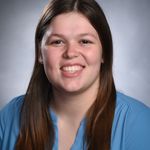 For Thursday, April 10th, our first spotlight is on Caitlin Colicchio, a Ph.D. candidate studying mechanobiology and aging in soft tissues in The Connizzo Lab. In addition to being an active member of CMTM, Caitlin is also part of the inaugural class of fellows in BU’s Graduate Training Program in Biological Feedback Control. Funded by the National Science Foundation, this program forms an interdisciplinary community of students and faculty that combines the study of the engineering principles of feedback control with investigations on how biological systems self-regulate, adapt, heal, and evolve. Learn more about Caitlin and her work here at BU below!
For Thursday, April 10th, our first spotlight is on Caitlin Colicchio, a Ph.D. candidate studying mechanobiology and aging in soft tissues in The Connizzo Lab. In addition to being an active member of CMTM, Caitlin is also part of the inaugural class of fellows in BU’s Graduate Training Program in Biological Feedback Control. Funded by the National Science Foundation, this program forms an interdisciplinary community of students and faculty that combines the study of the engineering principles of feedback control with investigations on how biological systems self-regulate, adapt, heal, and evolve. Learn more about Caitlin and her work here at BU below!
Where did you attend college, and in what field is your undergraduate degree?
I attended college at Bucknell University in Lewisburg, Pennsylvania where I studied biomedical engineering with a minor in American Politics.
Who were your scientific mentors before coming to BU?
My most influential scientific mentor before coming to BU was Dr. Eric Kennedy at Bucknell University. He was the professor who first introduced me to biomechanics research and working with him set me on the path to pursuing a PhD.
Can you give us a brief overview of your research?
My research focuses on uncovering sex and hormonal differences in tendon mechanobiology by studying hormone incorporation and metabolism, strain dependent impacts of hormones on ECM remodeling, and variable timing and concentrations of hormone delivery.
What are your career goals?
I am planning to pursue a career in industry after graduating, but I’m still figuring out whether I want to continue as a research scientist or switch into a more managerial role.
If you had to have a career outside of science, what would it be?
If I had to have a career outside of science, I think I would choose to be a policy advisor. I really enjoyed the American public policy and ethics in policy classes I took during my undergrad and had considered looking into job opportunities in health policy.
What have you discovered as part of your research that has surprised you or your team?
Something in my research that surprised me is how much we still have to learn about women’s health. There are so many unknowns when it comes to sex and hormonal differences, but luckily there are a lot of great researchers committed to filling in those knowledge gaps.
What kinds of books do you read for fun?
I really enjoy reading in my free time and like books across a wide range of genres. I’ll read basically anything from historical nonfiction to science fiction, fantasy, and romance.
_____________________________________________________
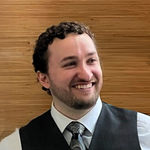 Our next trainee spotlight for Thursday, April 10th is Joseph Hall. Joseph is a member of the The Cell & Tissue Mechanics Lab who successfully defended his dissertation last week! Congratulations, Joseph! He was nominated for a spotlight by his PI Bela Suki for doing fantastic research on computational mechanobiology related to fibrosis. Learn more about his research through our Q&A!
Our next trainee spotlight for Thursday, April 10th is Joseph Hall. Joseph is a member of the The Cell & Tissue Mechanics Lab who successfully defended his dissertation last week! Congratulations, Joseph! He was nominated for a spotlight by his PI Bela Suki for doing fantastic research on computational mechanobiology related to fibrosis. Learn more about his research through our Q&A!
Where did you attend college, and in what field is your undergraduate degree?
I attended Washington State University (Go Cougs!) and my degree was in BME
Who were your scientific mentors before coming to BU?
Dr. David Lin and Dr. Anita Vasavada from Washington State University, and Dr. Craig McGowan from the University of Southern California
Can you give us a brief overview of your research?
I study the mechanics involved in lung disease progression by combining spring-network models with agent-based models. I recently defended my dissertation on how we can use these to predict disease progression in personalized human CT scans.
How did you get involved in this topic?
At WSU, I worked in a biomechanics lab that specifically looked at gait in kangaroo rats. During that time, I found a love for coding and biomechanics. When I came to BU and joined Dr. Suki’s lab, I was thrilled to find an opportunity that allowed me to continue to pursue these passions while having an impact on lung diseases, which have had a large impact on my family.
How do your current research interests align with our Center for Multiscale & Translational Mechanobiology?
My research combines spring network models which represent structure and mechanical behaviors with agent-based models which represent the biological mechanisms that act upon the structure. The interaction between these two models shows how essential it is to study biological processes in an accurate mechanical environment, and this aligns with CMTM’s interests.
What do you like to do for fun?
I love to paint! I started painting when I started grad school and it’s helped me stay balanced with research and art. I’m also involved with the BU choirs!
What is your favorite comfort food?
Mac and Cheese mixed with chili con carne; it is the best.
How has our Center supported you over the past year?
CMTM has given me opportunities to share my research with my peers, which has helped me to prepare for presentations at conferences. It has also helped me to network and collaborate on projects with other members of the center.
________________________________________________
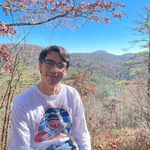 Our trainee spotlight series for Wednesday, April 9th starts with Joseph Soto, a graduate student working in The Connizzo Lab. Joseph is currently pursuing his M.S. in Biomedical Engineering, working on efforts to understand tendon mechanobiology. Learn more about him and his research through the interview below!
Our trainee spotlight series for Wednesday, April 9th starts with Joseph Soto, a graduate student working in The Connizzo Lab. Joseph is currently pursuing his M.S. in Biomedical Engineering, working on efforts to understand tendon mechanobiology. Learn more about him and his research through the interview below!
Where did you attend college, and in what field is your undergraduate degree?
I got my Bachelor of Science in Biomedical Engineering from the University of Florida, in Gainesville, FL.
Who were your scientific mentors before coming to BU?
Dr. Blanka Sharma and Dr. Joseph C Fantone. They both helped me greatly at UF and I owe them a lot.
Can you give us a brief overview of your research?
In our continuing efforts to understand tendon mechanobiology, we put mouse tendons under healthy strain under a cyclic hormone regiment, mimicking that of their reproductive cycle, to determine whether peaks and falls of female sex hormones will cause obvious differences in the viscoelastic properties of the tendon.
How did you get involved in your research?
After she gave a talk, I asked Dr. Connizzo if her work on sex hormone impact on tendon health implicated health concerns for transgender athletes and other individuals and I sort of went down a bit of a rabbit hole into my current project on cyclic hormone cycles.
How do your current research interests align with our Center for Multiscale & Translational Mechanobiology?
Our research could reveal some of the underlying trends of tendon mechanobiology as a result of biological factors for future applications in medicine within women’s health!
What are your career goals?
I want to enter the biotech industry and ideally work in cancer therapy or immunology, but above all else, I just want to try and make the world a better place.
How has our Center supported you over the past year?
The symposium last semester was a great way to learn about each other’s research and I really enjoyed hearing from so many different yet connected researchers!
Do you prefer “pure science,” or are you more interested translational research?
I prefer translational research. Sometimes its hard for me to stay motivated but to see clearly the impact my work can have on improving human health is a great inspiration for myself.
If you could go on vacation anywhere in the world, money no object, where would you go and why?
Colorado! I’ve been there before when my brother lived out there, but I’ve always wanted to go back. Summer or Winter! Any season is beautiful out there.
Do you have a favorite science meme?
Too many to choose, but I’ll leave you with this one:
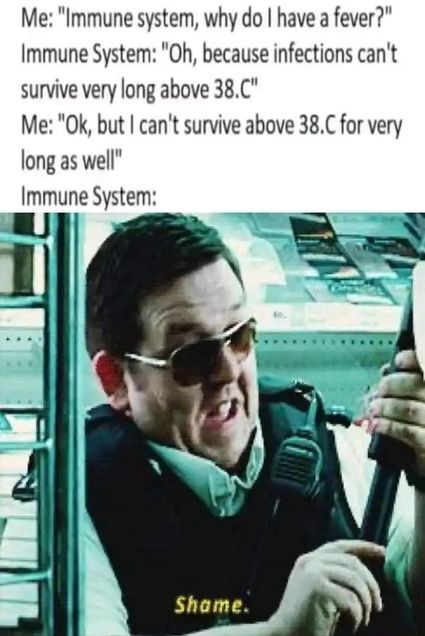
_____________________________________________________
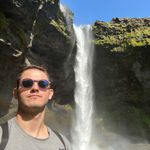 Rounding out our spotlights for Wednesday, April 9th is Kostas Kontodimas. Kostas is a Ph.D. student in the Varelas Lab on the Boston University Medical Campus, Department of Biochemistry & Cell Biology. He works with PI Bob Varelas and his lab mates using molecular and genetic approaches to understand how cell polarity and mechanical cues direct the activity of the transcriptional effectors YAP and TAZ to control mammalian organ development, homeostasis and disease processes. Find our more below!
Rounding out our spotlights for Wednesday, April 9th is Kostas Kontodimas. Kostas is a Ph.D. student in the Varelas Lab on the Boston University Medical Campus, Department of Biochemistry & Cell Biology. He works with PI Bob Varelas and his lab mates using molecular and genetic approaches to understand how cell polarity and mechanical cues direct the activity of the transcriptional effectors YAP and TAZ to control mammalian organ development, homeostasis and disease processes. Find our more below!
Where did you attend college, and in what field is your undergraduate degree?
I graduated from BU in 2019, with a degree in Molecular Biology and Genetics.
Can you give us a brief overview of your research?
My main project revolves around understanding the role of the Hippo pathway in lung endothelial cell regeneration and injury responses.
How has our Center supported you over the past year?
The CMTM has offered me a huge network of experts in bioengineering and tissue engineering that have helped me design and execute several projects. Additionally, the center also hosted the CMTM Symposium which allowed me to present my research and receive insightful feedback. Lastly, the weekly updates are a lifesaver when it comes to being up to date with deadlines and grant applications.
Do you prefer “pure science,” or are you more interested translational research?
Part of me loves the art of discovering and part of me wants to see these discoveries help patients.
What is your favorite band or genre of music?
My favorite composer while writing is Hans Zimmer, whom I got to see live at the Garden in 2024, however, my favorite band for wet lab activities are the Black Keys.
If you could go on vacation anywhere in the world, money no object, where would you go and why?
Anywhere they have filmed/or are planning to film a White Lotus season. For example, an all-inclusive resort in Thailand sounds amazing right now.
What do you do to relax after a long day of studying and working in the lab?
I like relaxing by playing water polo. We recently represented BU in the National Club tournament which was held in Gainesville, Florida and ranked 4th in the nation.
_________________________________________________________
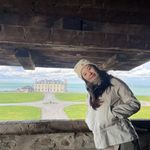 Meet Celeste Deng, one of our trainees being spotlighted for Tuesday, April 8th. Celeste is a graduate student working in The Cell & Tissue Mechanics Lab with PI Bela Suki, as well as the Nia Lab with PI Hadi Nia, working mainly on measurements of individual collagen fibers in the Department of Biomedical Engineering here at Boston University. Celeste has been a very active member of the CMTM community, including presenting at our annual Trainees on Tap event!
Meet Celeste Deng, one of our trainees being spotlighted for Tuesday, April 8th. Celeste is a graduate student working in The Cell & Tissue Mechanics Lab with PI Bela Suki, as well as the Nia Lab with PI Hadi Nia, working mainly on measurements of individual collagen fibers in the Department of Biomedical Engineering here at Boston University. Celeste has been a very active member of the CMTM community, including presenting at our annual Trainees on Tap event!
Where did you attend college, and in what field is your undergraduate degree?
I attended Southern University of Science and Technology (SUSTech) in China where I majored in Biomedical Engineering and focus on biomaterial for bone regeneration.
Who were your scientific mentors before coming to BU?
Prof. Bin Tang is my scientific mentor (PI) at SUSTech. He is also the guide of my academic path. Prof. Jixian Zhai is my advisor that leads me to the field of Biomedical Engineering.
What brought you to BU to pursue your doctorate/master’s/postdoc?
I got a chance to study as an exchange student at MIT at my senior year. During the time I had a nice experience of living in Boston. And I found the engineering college at BU provides a good environment for interdisciplinary research. Collaborations within BU makes it easier to have resources from different fields.
Can you give us a brief overview of your research?
I’m doing the mechanics and mechanobiology within lung tissue, with a focus on collagen fibers. In my research, I study the mechanics in individual collagen fibers from lung tissue and how immune cells respond to those changes of mechanics. I found that the increase of mechanical loads in collagen fibers would accelerate its degradation during disease progression. I’m also looking at the collagen fiber remodeling in human tissue based on images.
How did you get involved in this research?
I got wet lab experience from my undergrad and started getting interested in mechanics at my senior year at MIT. So I wanted to work on biomechanics when I enter BU. Prof. Bela Suki’s lab is doing the mechanics in lung tissue. He has the idea of getting mechanical measurements at fiber-level in lung tissue. And he has a postdoc that worked on the device and experiment protocol in the lab when I joined his lab. I’m so happy to continue the work and start my PhD with this focus.
How do your current research interests align with our Center for Multiscale & Translational Mechanobiology?
I’m doing mechanical studies at multiscale of the lung tissue, with both fiber and tissue level. And I studied how cells response to mechanics in collagen fibers which relate to the mechanobiology in lung tissue. My translational research is based on my finds in collagen fibers digestion under mechanical loads that would have implications in mechanical redistribution in the damage of lung tissue during disease progression.
What are your career goals?
Do something that can help some people. Contribute something to make the world a tiny bit better.
What advice would you give to incoming first-year graduate students in your lab?
Enjoy your research and PhD journey. Have a nice sleep. Don’t forget to eat.
What do you like to do for fun?
Piano! Reading books. Watch films. Cooking. Shopping without buying?
What is your favorite comfort food?
Everything my grandmom makes 😊
Are you more of a “dog person” or a “cat person”? (Or both, or neither!)
Both. But I’m too lazy to have one.
What do you do to relax after a long day of studying and working in the lab?
Practice on piano.
If you had to have a career outside of science, what would it be?
Library manager
How has our Center supported you over the past year?
I received the CMTM student seed grant in 2023. And it supported my conference travel to San Diego and helped with my publication fee for my 1st paper.
If you could have a postdoc position with any PI in any lab in the world after this, what scientific area would it be in and why?
Keep working on Biomechanics
What is some of the most valuable advice you’ve gotten?
There is no bad choice before 30s. Take the chance if that is what you want to do.
Where are you from originally?
I originally come from Xiangtang city in Hunan province of China. I love spicy food!
How are you enjoying the urban campus of BU, as opposed to a more traditional isolated college campus setting?
I prefer the urban campus of BU. I like trying different foods and restaurants.
How do you deal with the cold Boston winters?
Go snowboarding!
If you could go on vacation anywhere in the world, money no object, where would you go and why?
Hawaii or Maldives.
What is your favorite movie or movies?
La la land
________________________________________________
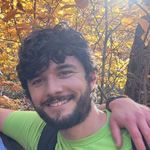 Next in our spotlight for Tuesday, April 8th is Chris Kuffner. Chris is a Ph.D. student in The Ngo Lab under PI John Ngo, working on achieving a multi-scale understanding of the molecular organization of life using use molecular engineering to probe and re-program how cells communicate with one another at cell-cell interfaces. Chris is another active member of CMTM, attending many social and academic events with us! Learn more about him below.
Next in our spotlight for Tuesday, April 8th is Chris Kuffner. Chris is a Ph.D. student in The Ngo Lab under PI John Ngo, working on achieving a multi-scale understanding of the molecular organization of life using use molecular engineering to probe and re-program how cells communicate with one another at cell-cell interfaces. Chris is another active member of CMTM, attending many social and academic events with us! Learn more about him below.
Can you give us a brief overview of your research?
I am involved in protein engineering to design reporters for molecular phenomena inside and outside of the cell. My extracellular work involves engineering Synthetic Notch (SynNotch) receptors to sense attributes of the extracellular matrix around a cell and trigger programmed cellular responses. For my intracellular work, I analyze single RNA molecules, measuring shifts in Brownian motion that occur due to changes in molecular mass when proteins bind to RNA, as well as processes that actively transport RNA to specific subcellular compartments.
What is your favorite comfort food?
Star Market frozen pizza, but only when it’s on sale for three bucks a pie. Eaten entirely in one sitting, naturally.
If you had to have a career outside of science, what would it be?
I think I would have made a great motorcycle racer, but people keep telling me it’s too dangerous.
Do you prefer “pure science,” or are you more interested in translational research (using the research you do in your lab to develop new ways to diagnose and treat disease)?
The lab I work in develops tools that can be used both to answer new scientific questions and to solve new translational problems. One of the newer tools I’ve developed should solve a specific translational problem that doesn’t yet have a straightforward solution, so I am very interested in translation right now.
How are you enjoying the urban campus of BU, as opposed to a more traditional isolated college campus setting?
Whether my campus is urban or secluded, I know that I’ll spend most of my time in the lab. The Kilachand Center that I work in is a fantastic building- well-lit and spacious, so I’m very pleased with BU’s campus. I will never stop complaining aboutthe rent here in Boston though.
How do you deal with the cold Boston winters?
I installed full-spectrum LED lights and have many plants at my desk to trick myself into thinking it’s not winter. It works well! The part I struggle with is getting exercise when it’s almost too cold to breathe – since moving to Boston, I’ve come to understand why someone might spend thousands on a fancy exercise bike.
____________________________________________
 Our first trainee spotlight for Monday, April 7th is Matthew Lim. Matt is a graduate student working in The Connizzo Laboratory with PI Brianne Connizzo, studying mechanobiology & aging of soft tissues in the Department of Biomedical Engineering here at Boston University. Matt is also one of our Trainee Leaders, helping organize and promote out trainee Journal Club meetings and other events! We interviewed Matt for our first trainee spotlight of 2025; see Q&A below.
Our first trainee spotlight for Monday, April 7th is Matthew Lim. Matt is a graduate student working in The Connizzo Laboratory with PI Brianne Connizzo, studying mechanobiology & aging of soft tissues in the Department of Biomedical Engineering here at Boston University. Matt is also one of our Trainee Leaders, helping organize and promote out trainee Journal Club meetings and other events! We interviewed Matt for our first trainee spotlight of 2025; see Q&A below.
Where did you attend college, and in what field is your undergraduate degree?
I am a proud graduate of the University of Virginia, and I majored in biomedical engineering.
Who were your scientific mentors before coming to BU?
My research mentors were Dr. Jeff Holmes, Dr. Kyoko Yoshida, and Dr. Pim Oomen. However, I frequently relied on others for general scientific mentoring such as Dr. Shannon Barker, Dr. Silvia Blemker, and Dr. Brian Helmke.
Can you give us a brief overview of your research?
My research focuses on uncovering how mechanical and biological factors impact the tendon microdamage repair process, with the goal of promoting complete tendon regeneration.
How did you get involved in biomedical engineering?
Going into undergrad, I was set on becoming a cardiac surgeon after graduation, but I decided to major in biomedical engineering instead of biology because I considered myself to be decent at math (and I was told it is easier to switch out of engineering than switch into it). I quickly fell in love with the design process and collaborative nature of engineering field during my first semester, which led me to join a lab researching cardiac biomechanics and drop the goals of medical school. My positive experience in this biomechanics lab during COVID prompted me to pursue research opportunities in musculoskeletal biomechanics and mechanobiology, as I thought it would be a perfect way to combine my passions of biomedical engineering and sports science.
What do you like to do for fun?
I enjoy participating in a variety of sports: I rock climb indoors for my regularly scheduled workouts, but I also snowboard during the winter, play tennis during the summer, and play on a BU BME IM soccer team during the spring and fall. In addition to sports, I consider myself to be a bit of a foodie, and I actively search for new restaurants and cocktail bars (I am always open to recommendations).
What is your favorite comfort food?
Homemade mac & cheese (bonus points if it’s a buffalo chicken or a barbecue mac & cheese)
What do you do to relax after a long day of studying and working in the lab?
Light a candle, turn on some dim yellow lighting, and either read a book or watch some mindless reality TV.
What is your favorite band or genre of music?
Alt/Modern Rock (The Backseat Lovers, The Strokes, Arctic Monkeys, etc.)
What is one of your favorite lab meeting memories from your time at BU?
During my rotation, I vividly remember feeling surprisingly valued and welcome because one of the upperclass PhD students baked a vegan version of my favorite cake (carrot cake). Because it was vegan it ended up being more like a carrot cake loaf, but nonetheless it was scrumptious.
Do you prefer “pure science,” or are you more interested translational research (using the research you do in your lab to develop new ways to diagnose and treat disease)?
While I see both as extremely important, I am personally more interested in translational research because I really enjoy seeing the immediate impact of my research on society.
Where are you from originally?
A town called Short Pump which is located in the suburbs of Richmond, VA.
How do you deal with the cold Boston winters?
I snowboard to cure my seasonal depression, and I switch from biking to riding the T into work because my body is not meant for these temperatures.
What is your favorite television show?
Avatar the Last Airbender
Do you have a favorite science meme?
I reference this one quite a lot:
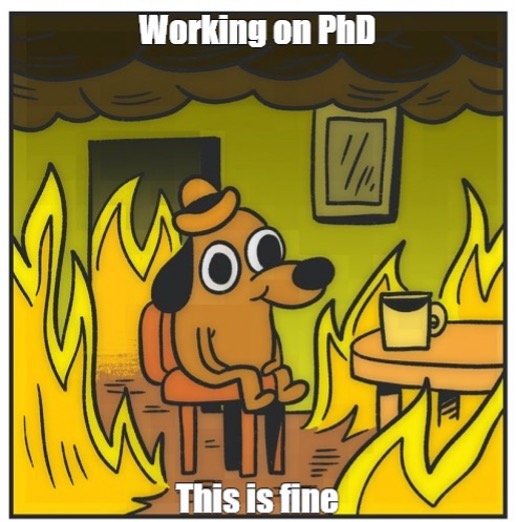
What kinds of books do you read for fun?
I generally enjoy sci-fi and fantasy. One of my favorite books is The Martian by Andy Weir. Recently, I reread The Inheritance Cycle books (Eragon series), and I am currently working through the Stormlight Archive novels (The Way of Kings series) by Brandon Sanderson.
_____________________________________________________
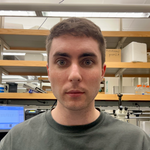
Our second trainee spotlight for Monday, April 7th is Samuel Halvorsen, who is also our second Trainee Leader for 2024-2025! Sam works in the Multi-Scale Tissue Biomechanics Lab, which investigates the mechanics and mechanobiology of the extracellular matrix (ECM) at multi-scale using both experimental and advanced computational modeling techniques under direction of CMTM Director Katherine Yanhang Zhang. Read more about Sam below!
Where did you attend college, and in what field is your undergraduate degree?
I attended the University of Illinois at Urbana-Champaign and received a degree in Mechanical (Science and) Engineering. Our program didn’t have concentrations but if they did, mine definitely would have been in biomechanics, as I took all of the biomechanics elective courses our school offered, ranging from cellular mechanobiology to full-body musculoskeletal biomechanics.
Can you give us a brief overview of your research?
I aim to understand how human brain arteries change with age and neurodegenerative diseases like Alzheimer’s. I mechanically characterize the vessels to compare how they respond to deformations like pressurization and stretching. I also get images of the fibrous artery wall structure to better understand why the mechanical responses might be changing. Finally, I relate these mechanical and structural changes to aging and disease progression.
How do your current research interests align with our Center for Multiscale & Translational Mechanobiology?
Our work tries to synthesize many scales of biology, from tissue level mechanics to microstructural protein changes, which fits in well with the ‘multiscale’ aspect of CMTM.
What do you like to do for fun?
Since I recently turned 30, my brain told me I should get interested in birds and photography. So now I really enjoy going to local nature reserves to find new birds (and other wildlife) and photograph them if possible. A favorite spot is Hall’s Pond Sanctuary just near the CRC in Brookline, with its resident great blue heron.
Are you more of a “dog person” or a “cat person”? (Or both, or neither!)
I have always been a cat person – I grew up with 2 cats, one of whom is still alive, almost 20 years old. I appreciate how low maintenance they tend to be, though I like when my friends have dogs.
Do you prefer “pure science,” or are you more interested translational research (using the research you do in your lab to develop new ways to diagnose and treat disease)?
I think I generally prefer the pure science perspective because I care more about how (biological) things work and figuring out how to characterize them, more so than the translational research that comes after.
Where are you from originally?
I am from the Silicon Valley/Bay Area in California. It’s a miracle I made it out of there without the desire to become a software engineer.
When did you know you wanted to be a scientist?
I grew up surrounded by (civil) engineers and so I was always STEM-inclined and enjoyed math. But the distinct moment was when I was cooped up in the cabin of an Alaskan cruise when I was 15. We were watching some science program on TV about nanobots that could be sent into the bloodstream to help treat some condition. From there on out I’ve always been fascinated with engineering from a biological perspective, and am lucky enough to have been able to do it.
2022
2021
 Our final trainee spotlight for Graduate & Professional Appreciation Week 2022 is
Our final trainee spotlight for Graduate & Professional Appreciation Week 2022 is 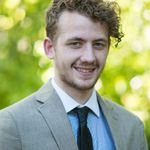 Our trainee spotlight for Thursday, April 7th is
Our trainee spotlight for Thursday, April 7th is 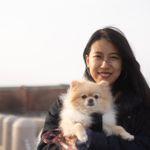 Our trainee spotlight for Wednesday, April 6th is
Our trainee spotlight for Wednesday, April 6th is  The trainee spotlight for Tuesday, April 5th is on
The trainee spotlight for Tuesday, April 5th is on  Our trainee spotlight for Monday, April 4th is
Our trainee spotlight for Monday, April 4th is 
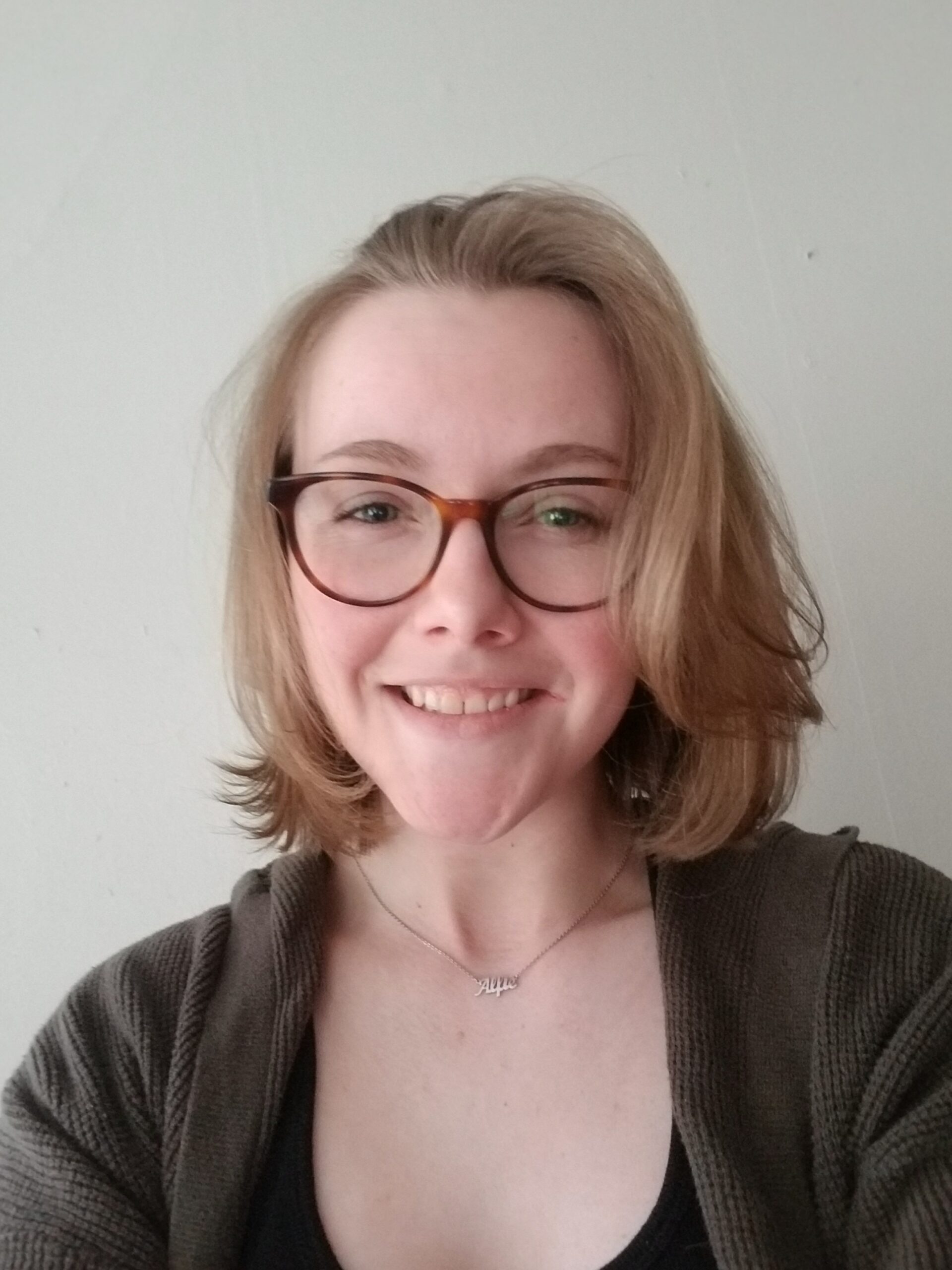 Our Trainee Spotlight for Thursday, April 8th, 2021 is
Our Trainee Spotlight for Thursday, April 8th, 2021 is 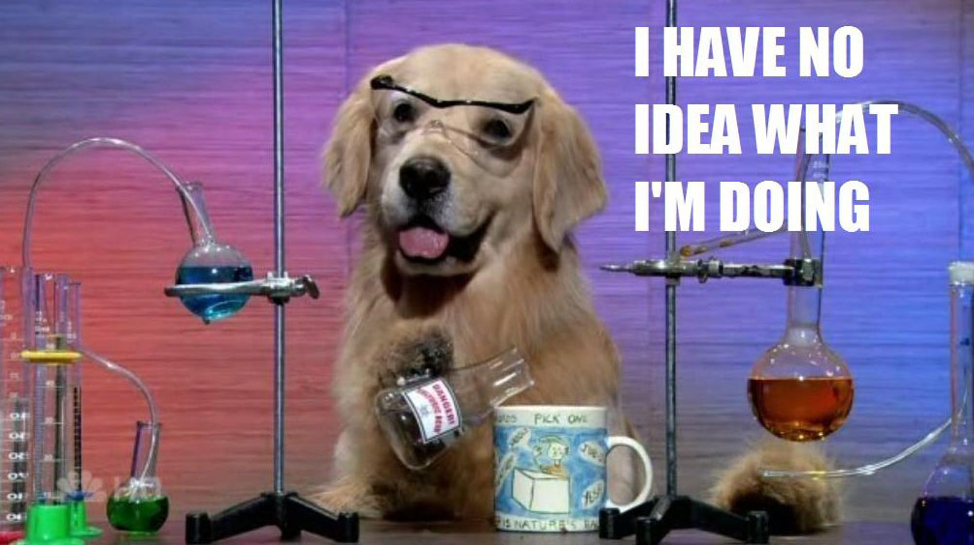
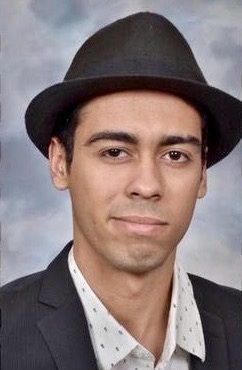 Our Trainee Spotlight for Wednesday, April 7th, 2021 is
Our Trainee Spotlight for Wednesday, April 7th, 2021 is 
 Our Trainee Spotlight for Tuesday, April 6th, 2021 is
Our Trainee Spotlight for Tuesday, April 6th, 2021 is 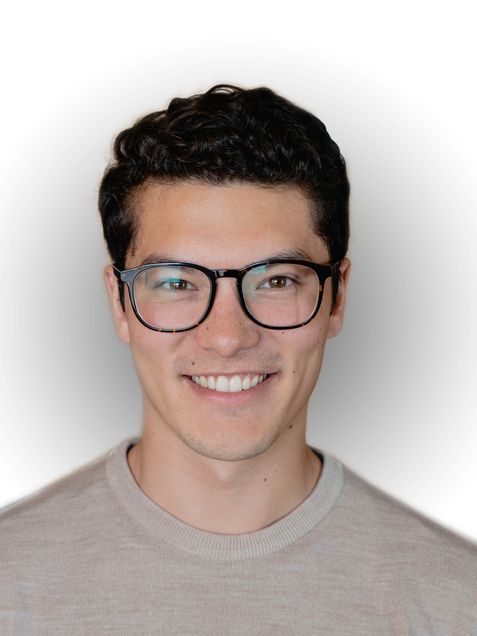 Our Trainee Spotlight for Monday, April 5th, 2021 is
Our Trainee Spotlight for Monday, April 5th, 2021 is 